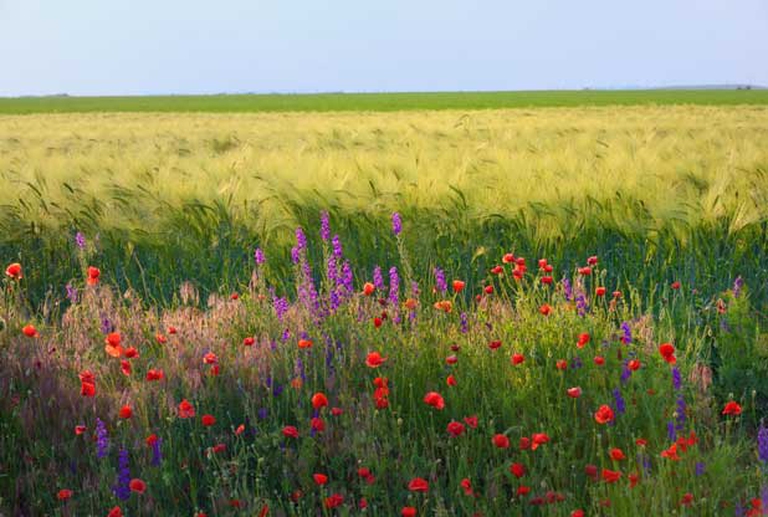
Factory farming conditions and antibiotic-resistant pathogens emerging as a result of them pose an existential threat to humans in the form of zoonotic diseases. Why it’s time to produce and consume food more thoughtfully.
The Danish government prepared a plan to double the areas cultivated with organic and biodynamic practices by 2020. Aiming to make Denmark go completely organic. As soon as possible.
The cooperation between forward-looking farmers, organisations and politicians made Denmark the leading country in the trade of organic products. From 2007 to now, exports of Danish products without pesticides have been growing by 200 percent; 8 percent of all foods are organic and this year is the twenty-fifth anniversary of the national organic logo which is recognised by 97 percent of all Danes.

This list of records, however, is no more enough for Denmark: the government, indeed, decided to turn national farming into organic and sustainable farming and, to do this, it conceived a very ambitious plan that allocates over 53 million euros to organic farming in 2015 only.
The first objective of the project, divided into 67 points, aims to double the Danish organic production area by 2020 with respect to 2007. The government wants the public sector to lead the way, hence all state owned lands are going to turn organic, as well as public canteens, while the government will involve and even financially support all producers and investors who will embrace organic farming whether they are farmers or breeders.
“As a result more than 800,000 people will benefit from healthy, organic meals served every day in canteens, hospitals and nurseries”, said Dan Jørgensen, Minister for Food, Agriculture and Fisheries.

“We want to raise the level of consciousness that children and young people have about organics, and through the ongoing educational reform we are improving education in organic farming and production in science classes and in the new classes about food,” says Minister of Education Christine Antorini. “We also want to start a dialogue with the advisory committees for agricultural training to strengthen their focus on organic production”.

The minister for Defense finally declared that he wants to turn organic even the 1.1. million meals served every year in the country’s military bases, specifying that, currently, in the western side of Denmark 40 percent of the food consumed by the armed forces is from organic cultivations.
Siamo anche su WhatsApp. Segui il canale ufficiale LifeGate per restare aggiornata, aggiornato sulle ultime notizie e sulle nostre attività.
![]()
Quest'opera è distribuita con Licenza Creative Commons Attribuzione - Non commerciale - Non opere derivate 4.0 Internazionale.
Factory farming conditions and antibiotic-resistant pathogens emerging as a result of them pose an existential threat to humans in the form of zoonotic diseases. Why it’s time to produce and consume food more thoughtfully.
The world of cinema recognises the link between food choices and the climate crisis by offering vegan menus for awards season events, including at the most important of them all: the Oscars.
Let’s look at the reasons behind the growth of veganism in India, as a small yet vocal section of the population turns towards this diet and lifestyle in the largest milk producing country in the world.
by Jeffrey Y. Campbell, Manager of the Forest and Farm Facility at FAO In the Ecuadorian Amazon, Kichwa farmers grow dozens of products on tiny parcels of land. Their lands hum with biodiversity, yielding nutritious foods that have sustained families for generations. Wandering among fruit and nut trees and crops, these indigenous agroforesters fill their baskets
Mint has many health benefits, but in food it’s often accompanied by artificial green colourings. Instead, Galatea has created a green mint ice cream in a completely natural way.
We’re talking about Galatea, a company that produces semi-finished products for artisanal ice creams using high quality ingredients, natural colouring, excluding thickeners and hydrogenated fats, respecting the environment and supporting the less fortunate.
The mad rush to fake food, like fake meat made with genetically-modified soy, ignores the importance of the diversity of our foods and culinary cultures. It’s a recipe to accelerate the destruction of the Planet and our health.
Like with all foods, the quality of an ice cream can be discerned by reading its label. An expert explains how to do this, and tells us how their company steers clear of chemicals, using only natural ingredients to produce an excellent and “free” ice cream.
Quality ingredients, no artificial colouring and hydrogenated fats. These are the main features of a great ice cream. But what makes an ice cream parlour “good”, i.e. sustainable?







